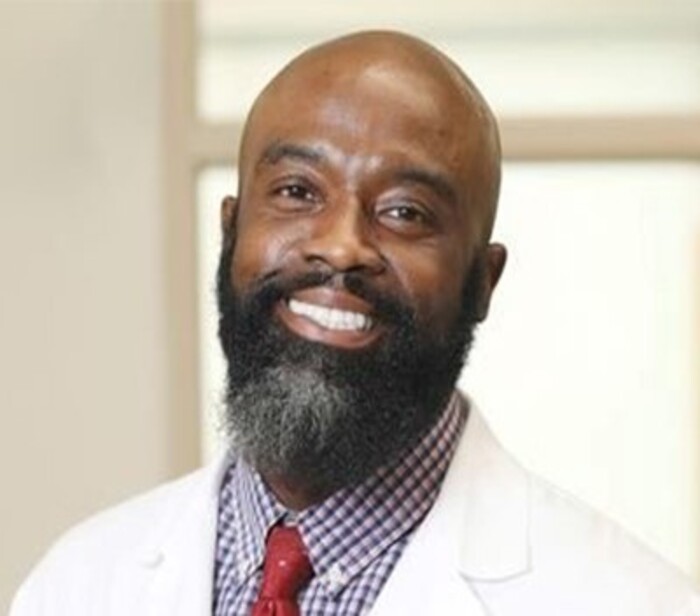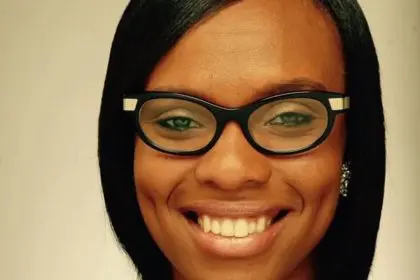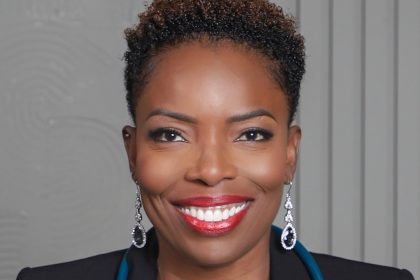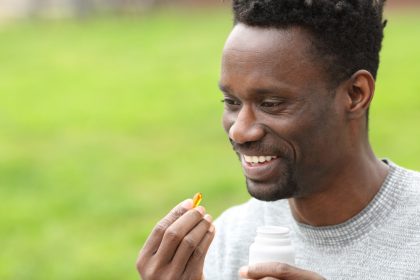The hushed corridors of Morehouse School of Medicine in Atlanta seem far removed from the rural North Carolina community where Dr. Melvin Echols first dreamed of becoming a cardiologist. Now an associate professor of medicine and a prominent heart failure specialist, Dr. Echols is working at the intersection of cutting-edge technology and healthcare equity, determined to ensure that advances in cardiac care reach all communities.
“Quality is quality,” Dr. Echols declares with conviction during our conversation, “and as long as you are able to live your life making sure that you’re doing the best that you can, that’s the quality, and that’s the standard.” It’s a principle that guides his approach to both patient care and medical innovation.
Leading the AI revolution in cardiology
As co-director of an artificial intelligence fellowship for full-time clinicians, Dr. Echols is helping shape how new technologies will transform cardiovascular medicine. The program, part of the AIM-AHEAD NIH grant, is known as CLINAQ and provides physicians with the foundation for understanding and implementing AI technologies.
“I think AI can be an amazing addition and supplement to medicine,” Dr. Echols explains, his tone measured and thoughtful. “But as anything, it’s a test and it’s a tool, and if you’re not quite sure how this tool is designed, then you run the risk of actually using the tool in not the most optimal way.”
His concerns about AI extend beyond just technical applications to the broader implications for health equity. “If this tool is not designed to detect bias or to take things that will increase the likelihood that groups will be left out, if you’re not in that space and you don’t understand how to evaluate that, then you run a risk of actually perpetuating these disparities that are already here with the digital divide.”
The 5 areas transforming cardiovascular care
Dr. Echols identifies several critical developments that are reshaping the future of cardiac care:
- Precision medicine approaches are becoming increasingly important as the number of heart failure medications grows. “Now you have heart failure medicines that are FDA approved, for the most part guidelines evidence-based, and you run a risk of actually having at least five to six heart failure medicines at one time if you’re optimally treated,” he notes. This raises important questions about what optimal treatment truly means for individual patients.
- Earlier intervention in heart failure is an area where Dr. Echols sees tremendous opportunity. “People really, in terms of the community, only consider heart failure when you actually go to the hospital,” he explains. “But in actuality there are way more people who actually have what we call stage B heart failure, which are risk factors or structural changes already that they don’t even know about.”
- Prevention strategies targeting hypertension, diabetes, and obesity could significantly reduce heart failure rates, particularly in the African American community. “African American men and women are more likely than any other group in the US to die earlier from heart failure and usually have less access to therapies like transplants and mechanical circulation,” Dr. Echols points out.
- Telemedicine expansion offers opportunities to reach underserved communities, though Dr. Echols cautions that technology must be deployed with attention to the digital divide.
- AI-assisted diagnoses show promise but require careful implementation. “Because trainees see AI do wonderful things in terms of pulling up facts and putting together diagrams and pictures, in their minds, I’m wondering if they are considering that they’re learning that information,” he reflects, concerned about over-reliance on technology.
Building bridges across the medical landscape
Dr. Echols’ vision extends beyond individual patient care to reshaping the broader medical landscape. As Chief DEI officer for the American College of Cardiology, he has been instrumental in creating exposure programs for underrepresented groups in medicine.
“We are now sponsoring internal medicine exposure programs for certain groups that actually have not been exposed to medicine and to the world of cardiology,” he explains. These initiatives include cohorts for African Americans, women, indigenous people, and LGBTQ individuals.
The purpose of these programs, Dr. Echols explains, is to “build out a psychological safety so that they could see people in that space that looked like them.” This representation matters deeply, he believes, for people who might otherwise question whether they belong in cardiology.
His commitment to diversity in medicine comes from a place of experience. The challenges of being a Black physician in cardiology are something Dr. Echols knows firsthand. “There will always be challenges, especially when you’re trying to do something that is not the standard pathway that you are used to seeing everybody follow,” he reflects.
The community connection
For Dr. Echols, technology and medical innovation cannot be separated from community engagement. This perspective was ingrained during his own medical education at Morehouse. “The first thing they did the first year was put us in the community and get us used to talking to people about their community,” he recalls.
This approach has informed his work in clinical trials as well. “When we talk about bringing people in for recruitment, I’ve been doing this for 15 years. There has to be a relationship, and there has to be a connection.”
The statistics underscore the urgency of his work. Every year, approximately 600,000 Americans are diagnosed with new-onset heart failure, many after years of undetected progression. For the African American community, which faces disproportionate burdens of hypertension, diabetes, and obesity, early intervention and prevention strategies could be life-changing.
From encyclopedias to algorithms
The journey from a boy reading encyclopedias in rural North Carolina to a physician at the forefront of medical technology and equity initiatives reflects Dr. Echols’ enduring commitment to both science and service. “I was fascinated by the science and what was going on with my family,” he says of his early interest in cardiology.
Today, that fascination continues as he navigates the rapidly evolving landscape of cardiac care, working to ensure that no community is left behind as medicine advances. His work with AI, telemedicine, and precision medicine is balanced by a deep understanding of the human element of healthcare.
“Listening is the most important thing,” he emphasizes. “We can always look up facts, we can always look up trials, but if you’re not hearing what a patient is telling you, you’re starting off on the wrong foot.”
It’s this balance, between cutting-edge technology and fundamental human connection, that defines Dr. Echols’ approach to modern cardiology. As medicine increasingly embraces artificial intelligence and digital tools, his work reminds us that the most important advances may be those that help us better understand and serve our communities, particularly those that have historically been underserved.
In the end, Dr. Echols’ vision for the future of cardiac care is one where technology amplifies rather than replaces the human touch, where innovation serves equity, and where quality remains the unwavering standard. It’s a vision that began in those encyclopedia pages many years ago and continues to evolve with each new patient, each new study, and each new technology.














